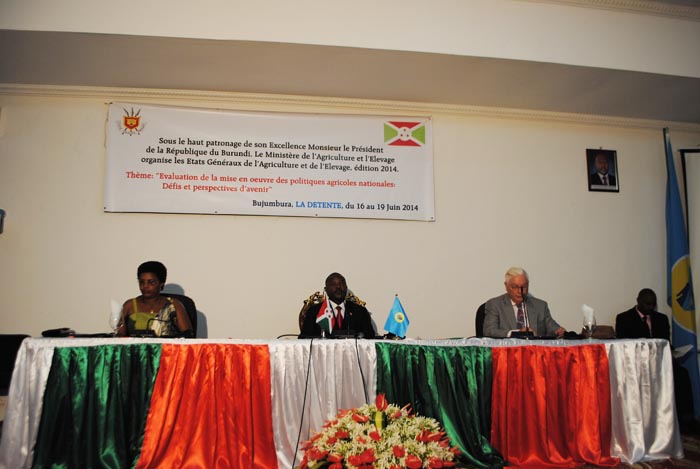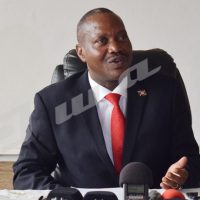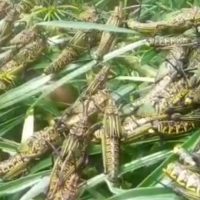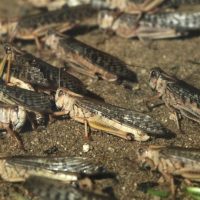The Ministry of Agriculture and Livestock has organized a four- day General Assembly (from 16th to 19th June 2014) to evaluate the situation and discuss challenges and perspectives to fight against malnutrition.-By Diane Uwimana

Pierre Nkurunziza: “Agriculture occupies more than 90% of people in terms of employment and contributes more than 50% of gross domestic product while it offers more than 95% of food.” ©Iwacu
“45% of children aged between 6 and 59 months are suffering from anaemia while 19% of women able to give birth are suffering from the same disease,” says Dr Déo Guide Rurema, an Expert and Focal Point of SUN project.
He also states that demographic pressure, climate change, landscape management and poor technologies are among the causes of that malnutrition.
For Damase Ntiranyibagira, a Coordinator of PTRPC (Post Conflict Reconstruction Transitional Program) project notes that Burundians have the wrong custom or habit of eating food of poor quality in nutrients. “It would be better to cultivate more legumes but there isn’t any progress if we take into account the situation of in different households,” adds Ntiranyibagira.
Rym Benzid, the Country FIDA Representative, adds that it is important to fortify some food and soil instead of multiplying some seeds: “It isn’t all farmers who are able to buy chemical fertilizers!”
Donatien Nijimbere, Administrator Director General of BNDE, mentions that people’s revenues have decreased so much that it has restricted facilities to farmers.
“Consumers do not know what kind of food to take. There are many obstacles such as credit bank, climate change, pesticides and other fertilizers that constrain farmers not to produce more and fight against malnutrition”, underlines Nijimbere.
“A road map to boost agriculture and livestock sector”
According to the last survey conducted by Food Agriculture Organization (FAO), Burundi is among other countries which are the most affected by starvation in the region. “About 925 million of people are suffering from malnutrition. However, Burundi has made a small progress in moving from 58% of children of less than five years to 50%. Then, Burundi must work hard to achieve 40% to be registered as a country with a good nutrition,” points out Odette Kayitesi, Minister of Agriculture and Livestock.
She indicates that this General Assembly will allow to draw up an inventory and identify some aspects of agriculture and livestock issues to be boosted in order to improve the livelihood of Burundians. “This General Assembly is a kind of occasion to evaluate the part of each intervener (from the farmers to the exporters) in the sector,” highlights the Minister. About the budget allocated to the agriculture and livestock, the Minister recognizes that some steps have been made to respect the Maputo Convention. “We have moved from 2% to 10% of the budget allocated to this sector, we hope that the Government will increase it since 85% of Burundians are living on agricultural activities”, notes Kayitesi.
Pierre Nkurunziza, the President of the Republic, in his opening remarks, indicates that agriculture occupies more than 90% of people in terms of employment and contributes more than 50% of gross domestic product while it offers more than 95% of food.
“That is the reason why the government has organized this General Assembly under the theme Evaluation of the Implementation of National Agricultural Policies, Challenges and Perspectives,” underlines the President.
Nkurunziza also indicates that some obstacles are still observed in the agricultural domain such as low implication of private sector in funding activities, lack of trained official and technician personal staff, lack of harmonization in intervention approaches and high demographic pressure on earth and protected natural ecosystems.
“During these four days, all interveners in agriculture and livestock domain will draw up a road map to follow up the situation in order to boost it and improve the nutrition for all Burundians,” concludes the President.


















 IWACU Open Data
IWACU Open Data

